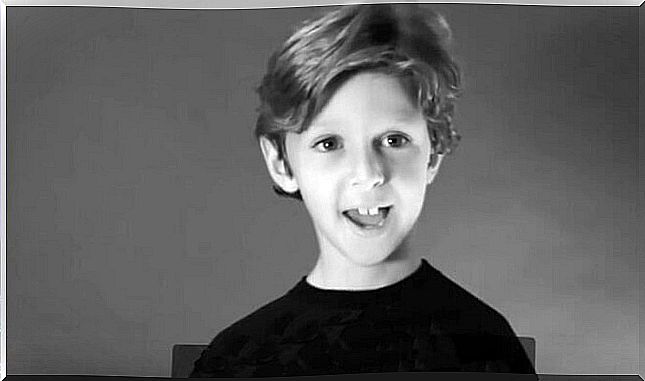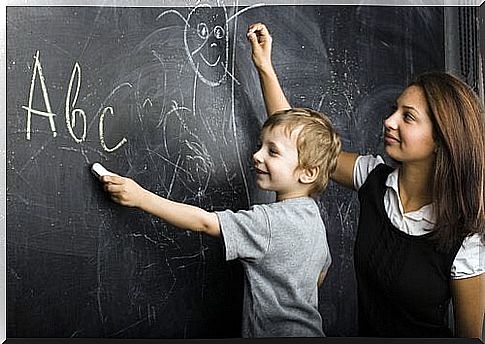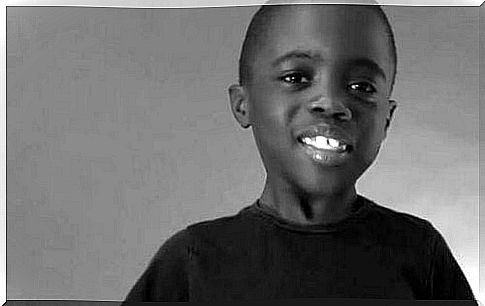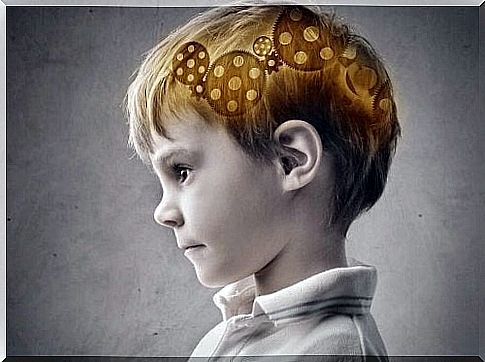Dear Teachers, Here’s How To Understand A Student With ADHD

Children diagnosed with Attention Deficit Hyperactivity Disorder (ADHD) often do not behave as expected in the classroom. And this means that teachers and teachers take measures that are not always adequate. If we could put ourselves in the shoes of these children, perhaps we would be able to understand what the situation in school looks like in their eyes.
It is easy to judge, to get angry and to take measures that, from our point of view, are more than valid. Yet sometimes these punishments only make the situation worse, instead of helping children understand. Perhaps, in reality, they are paying attention, even if they are not doing it in the way we consider right. Maybe we think they don’t want to learn, but it’s actually their greatest desire. Students suffering from ADHD have something to tell you, to tell their teachers, parents, grandparents and friends… Are you willing to listen to them?
Students with ADHD and the self-regulation of emotions
The behavior of students suffering from ADHD often denotes enormous difficulty in controlling, regulating and managing emotions. For this reason, the latter can be unleashed at the least indicated time and in the least appropriate way. This lack of control leads them to express their feelings in an intense and unregulated way. A way that, in the eyes of adults, often corresponds to immature behavior.
However, their level of maturity, compared to that of children their age, is not the cause of the problem. After all, if we refer to “maturity” in the most classic sense of the word, small children are all, by definition, immature. Or maybe you believe that everyone is born already mature? Using punishments to teach a child with ADHD to stop behaving in a certain way is completely useless. We must work on managing emotions, not punishing a behavior that was carried out without any malice.

It is easy to imagine what happens when a student with ADHD is punished as an incentive to control and repress his emotions: he will react by becoming defensive. If we don’t know, we will misjudge that pupil, label him and unintentionally increase his feeling of insecurity, which will only have negative effects on him.
Do we really want children with this disorder to grow up with low self-esteem? Is this what we are teaching them in class? If they don’t learn in the conventional way, perhaps we should ask ourselves if we shouldn’t change the way we teach instead of wanting to change their way of being. A child sitting, still and immobile, listening to information that he doesn’t understand: what’s the point? We would like them to be adults, to behave in a mature way, but we don’t realize they are just children.
How can students with ADHD be helped?
Children with Attention Deficit and Hyperactivity First of all need to move and give free rein to their creativity. No child can stay still and sitting for too long, and even more so if they suffer from ADHD. The fact that he moves does not necessarily imply that a child is distracted, it is simply his way of learning. If you force them to stand still like statues, they won’t know how.

There is no need to scold or punish them just because they are looking out the window or somewhere else. You too must have done it as children, and nothing happened. In a minute or less, they’ll be back to focusing on the lesson. It’s natural.
Going for punishments like skipping intermission is a terrible choice, because what these kids need most is activity. Always think that the little ones need to switch off every now and then, just like us adults. Do you really believe that preventing them from playing, relaxing or resting will improve their learning?
Children with ADHD need more help and support. If we don’t give it to them, they won’t be able to do what we tell them to do, because they won’t know where to start. Patience and calm are two indispensable qualities to explain to them everything they need and to clarify their doubts. Although often the problem is simply that we have given them too much information all at once – it is much better to go one step at a time.
This point is of fundamental importance. Many children get distracted because they receive a huge amount of information they don’t understand. There are also the opposite cases, however: children who get bored because they do not receive enough information or are told things they already know. Finding the balance between these two extremes means mastering the art of teaching. As for children with ADHD, it is good to keep in mind that they usually have a hard time working if they have to handle too much information at once, especially if they learn it statically.

If there is one thing that children with this disorder really need is for adults to accept the way they learn, understand and understand what they hear. Their brains are not the same as that of others, but that doesn’t mean they are less capable than other students. They just need more patience, less punishment, and more understanding.
Not knowing the cause of this type of disorder and how we live when we are affected often leads us to behave as real ignorant towards children who would like to learn, but to whom we do not know how to give what they need. We don’t have to overwhelm them with information or bore them if we want them to understand something, and we don’t have to punish them just to discharge our own frustration. Children suffering from DHAH are smart and want to learn. They try their best, and they deserve an effort on our part too.








